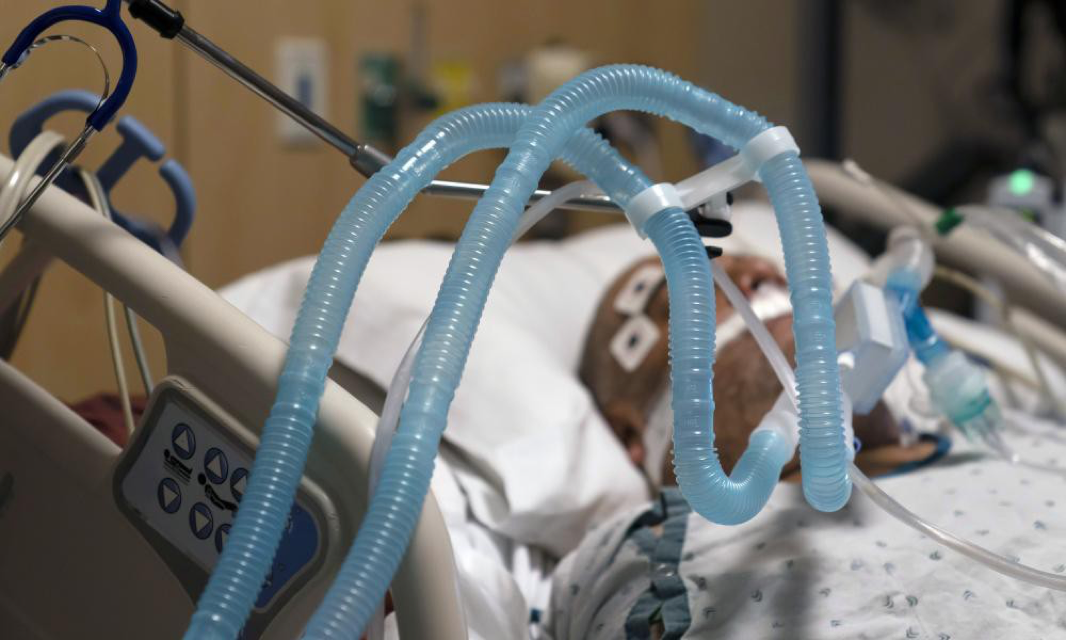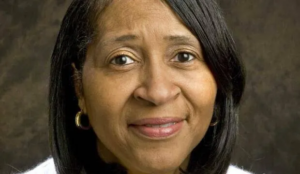Indiana hospital system has vowed to conduct a ‘full external review’ into Dr Susan Moore’s treatment
A Black doctor who died battling Covid-19 described racist medical care in widely shared social media posts days before her death, prompting an Indiana hospital system to promise a “full external review” into her treatment.
In the past year, public health experts nationwide have acknowledged the role racism plays in health care with dozens of cities, counties and states declaring racism a public health threat. While public health experts have called it a first step, many are skeptical.
Black people, and other members of communities of color, have often died at rates far higher than whites as the coronavirus has roared across the United States and killed more than 300,000 people – by far the highest total in the world.
The case of Dr Susan Moore has become a powerful and stark symbol of that inequity, garnering coverage in publications from the New York Times to USA Today and major television networks.
Moore, 52, tested positive for Covid-19 late last month and was admitted to IU Health North Hospital in Carmel, Indiana, according to a Facebook post. Acutely aware of her condition and medical procedures, the physician said had to repeatedly ask for medication, scans and routine checks while admitted at a hospital in Carmel, Indiana.
She noted a white doctor in particular who seemingly dismissed her pain and said she didn’t trust the hospital.
“I put forth and maintain, if I was white, I wouldn’t have to go through that,” she says in a 4 December video, her voice often cracking. “This is how Black people get killed, when you send them home, and they don’t know how to fight for themselves.”
She was released from the hospital run by Indiana University Health System on 7 December, but was again hospitalized 12 hours later when her temperature spiked and her blood pressure dropped, according to her post. She was taken to a different hospital, Ascencion St Vincent in Carmel, and said she was experiencing better care.
Still, her condition worsened and she was put on a ventilator. She died 20 December, her 19-year-old son Henry Muhammad told news outlets.
The coronavirus has especially disproportionately affected Black people, who suffer from higher rates of obesity, diabetes and asthma, making them more susceptible to the virus. Black Americans are also more vulnerable because of systemic racism, inequity in health care access and economic opportunity and the fact that many work in jobs that put them on the front lines of the pandemic.
Many Black Americans also report that medical professionals take their ailments less seriously when they seek treatment.
Moore grew up in Michigan, where she earned a medical degree at the University of Michigan in 2002. She had an active medical license in Indiana at the time of her death, according to MLive.com.
Dennis Murphy, the president and CEO of Indiana University Health, said he was saddened by Moore’s death. He said he did not believe the medical team “failed the technical aspects” of Moore’s care after a preliminary medical quality review but “may not have shown the level of compassion and respect we strive for in understanding what matters most to patients”.
“I am asking for an external review of this case. We will have a diverse panel of healthcare and diversity experts conduct a thorough medical review of Dr Moore’s concerns to address any potential treatment bias,” he said in a statement.
Muhammad, who said his mother was his best friend and a very caring person, didn’t get the chance to say goodbye before she died.
“I am outraged beyond words … because if what my mom thinks was true and that it was racism, and they neglected her because of that, nobody should go through that,” he told ABC News.




